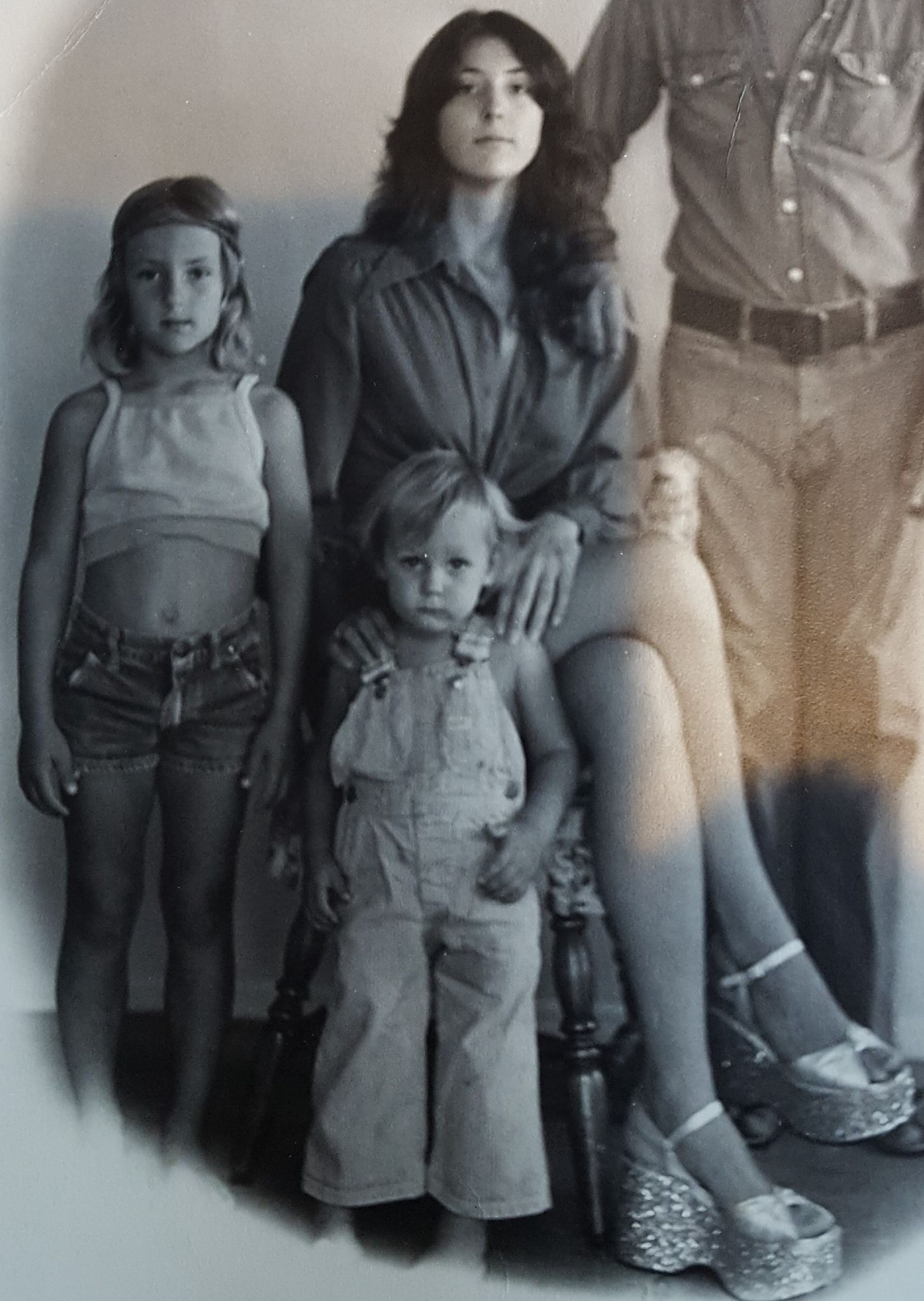
Once a hippie, always a hippie.
That may not be entirely true, but as a young woman in the prime of my awakening during the 60s and 70s, I embraced the hippie lifestyle and took the lessons of that time to heart.
(Yes, that’s me and my kids in the photo, circa 1973.)
For context, think of Jennie from the movie “Forrest Gump.” That will help you slip into the mindset of many young Americans who embraced the philosophy of making love, not war.
We saw a society that was dominated by materialism and repression, and we developed our own alternative lifestyle. We favored cooperative living, adopted vegetarian diets, gravitated to unprocessed foods and holistic medicine. The Whole Earth Catalog became our bible.
Our mantras were nonviolence and love. We were the “flower children.” We wore our hair long and decorated it with flowers. We promoted openness and tolerance as alternatives to the restrictions and regimentation we saw in middle-class society. We trusted one another.
Some of us practiced open sexual relationships and lived in communes. Our spirituality was eclectic. Buddhism and other Eastern philosophies were our guideposts. We began meditating.
Astrology was popular, and we saw the period as the Age of Aquarius. We used recreational drugs. Marijuana and LSD were viewed as ways to not just “get high” but to expand our consciousness.
The musical Hair opened on Broadway in ’68. Music festivals became popular. They were celebrations of life and protests for anything that was anti-life. Woodstock was held in rural New York state in ’69 and became synonymous with all things hippie.
Though the lifestyle began to wane by the mid-1970s, hippies continued to have an influence on the wider culture. We ushered in a more relaxed attitude toward sex. We highlighted a new awareness for the environment. We practiced being kind to one another: making love, not war.
Our protests encouraged the United States to end its involvement in the Vietnam War and prompted the signing of Roe v. Wade, making abortion a constitutional right.
Charles Wininger wrote an article in Psychology Today in May of 2010 in which he referred to the hippie ideal as “Radical Generosity.”
I love this term because, for me, it really does define the lifestyle we lived. We didn’t have much, but we were willing to give what we had to one another. We helped each other and loved one another. We recognized that our personal actions affected our brothers and sisters and our planet, so we tended to ourselves and our community.
Now we’re living in 2021, and it seems we’ve lost much of this paradigm. We’re socially isolated. We’ve grown into a society that says “me first” and overlooks the collective good. We’re steeped in violence and oppression.
I wonder: what kind of future might it foster if we could all become like hippies again? What if we revived the mantra of the 60s and lived in a way that truly promoted making love, not war?
Please indulge me as I offer a few ways in which you might ignite your “inner hippie”:
Recognize that my actions affect other people.
If we can be mindful of our words and actions—if we can show respect and consideration for the people around us—we can affect a healthier and happier culture (even if it’s only within our own small sphere of influence).
My actions affect the planet.
If we remain aware that our actions contribute to the health of the planet, we can make better choices in our routines. Some examples would be:
>> Not buying products we can’t reuse.
>> Bringing our own reusable bags when we go shopping.
>> Buying a reusable water bottle and stop buying water in plastic bottles.
My actions affect future generations.
Today’s children are growing up in a warmer world with risks of food shortages, infectious diseases, floods, and extreme heat. If nothing is done to mitigate it, its impacts could burden an entire generation with disease and illness throughout their lives. These same kids are growing up within a paradigm of violence, initiating extreme emotional burdens they could carry for a lifetime. Let’s educate ourselves about what we can do to contribute to the solutions rather than the problem.
Promote peace.
There is so much we can do to promote peace. Attend a peace rally. Listen with the intent to understand. Be helpful to others through simple acts, like helping our neighbors with their groceries or walking their dogs. Study nonviolence. Work for better gun laws. Reduce our carbon footprint by walking or biking. Eat more fruits and vegetables. Volunteer at a homeless shelter. Organize a community project. Read books about peace. Say, “I am sorry.”
Advocate for freedom and equality.
Let’s make sure we are well educated about the importance of Black Lives Matter, Women’s Rights, Latino Social Movements. Let’s learn about how to become advocates for the rights of the LGBTQ+ and AAPI communities. We can speak up on behalf of those who may not have a voice or as much privilege as we do. We can find ways to become better allies.
Become politically informed.
Read. Read history. Read a number of different news sources. Read opinion pieces. Attend lectures. Inform ourselves about important issues that affect our lives and the life of our planet.
Practice Radical Generosity.
There are so many ways to become generous. We can be generous in our words, generous in our actions. We can give of our time, give our positive spirit, share our money and our possessions. We can find ways to ignite our generosity so that giving of ourselves becomes as natural as breathing.
Is it possible for us to put those flowers back in our hair and revive the hippie ideals?
Won’t you please join me in finding all the new ways we can make love, not war?








Read 19 comments and reply